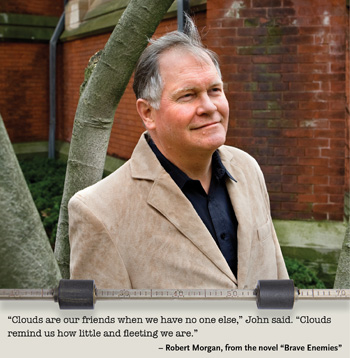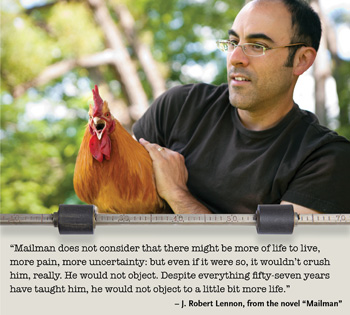COVER STORY
Why creative writing is a force on campus: Maintaining a balance between 'the mind and the heart' through storytelling
(Page 3 of 7)
Non-English majors also flock to undergraduate creative writing classes, says Robert Morgan, an English professor, novelist and poet whose most recent book is the acclaimed "Boone: A Biography."
He says some of the best writers he has taught came from engineering, the ILR School and the College of Agriculture and Life Sciences. In writing workshops they find more than instruction, he says. They find tools to develop and refine their voices, perceptions and relationship to the world.
"Creative writing cannot be taught, but it can be learned," Morgan says; particularly in the small workshops where students critique each other's work. "The teacher acts as a kind of coach. What all young writers look for is a 'true reader,' the reader who can see not only what the writer has done, but what the writer is capable of.
"It's also a way of inspiring young readers to get involved in writing and reading and thinking. That can lead to a much better sense of how to use language in speaking, arguing and writing. The range of our program -- from creative nonfiction, essay writing and poetry to fiction -- is very important. Creative writing has grown into a much bigger thing than it was when I came here."
Writing workshops give students a place to learn and grow into the craft; and they also impart skills that have value far beyond it, says J. Robert Lennon, who joined the creative writing faculty in 2006 and whose sixth novel, "Castle," was published this year.
Given the damage an ill-considered remark could cause in a setting where classmates often reveal intimacies, "students have to learn how to deliver criticism in a constructive manner," he says. "They have to find a way to make their criticism useful. This is a valuable skill to have in the professional world."
Students also learn about honesty and endurance, says McClane.
"Writing is hard work. You have to try to be as truthful as you can, and you have to realize that writing is a public act. You have to be responsible to an audience. To begin to take yourself seriously is to take other people seriously. To actually talk about your anxieties in a real and discerning way requires courage."

